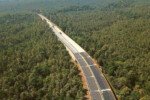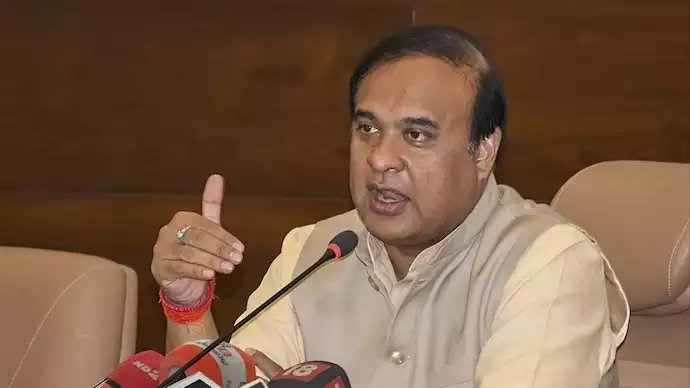GUWAHATI, Nov 4: Assam chief minister Himanta Biswa Sarma on Saturday said Rs 5,500 crore has been allocated for constructing an elevated expressway as a wildlife-friendly measure for the Kaziranga National Park (KNP), famed for one-horned rhinos.
The four-lane elevated road along NH-715 (old NH-37) will be at three locations with a total length of 34.28 km and this will also include two tunnels, the chief minister told a press conference here.
The work has been entrusted to the National Highway Authority of India (NHAI) and the detailed project report (DPR) by the state public works department has been recently handed over to the NHAI.
Sarma said the methodology to be used will avoid much construction on the existing road to reduce the impact on traffic flow, use precast/prefab technology to the extent possible to minimize construction time, while there will be no work after sunset to ensure minimal disturbance to the wildlife of the KNP.
“This is the biggest and perhaps the most comprehensive wildlife-friendly project that will contribute in a big way to the conservation of Kaziranga National Park, enhance tourism potential, enhance revenue generation and community development as a whole,” he said.
The concept of the wildlife-friendly road was developed in consultation with the Wildlife Institute of India, Dehradun, and will have elevated roads and tunnels to act as animal underpasses and overpasses respectively, Sarma said.
Adjacent animal corridors are also proposed to be joined to make a long elevated road to prevent
animals from making a detour, the chief minister added.
‘The project aims at taking long-term measures for reducing the impact caused by the national highway on one of the most important wildlife areas of the world, allowing unhindered movement of wild animals, mitigating anthropogenic fragmentation and unrestricted traffic flow,’ Sarma said.
The Kaziranga landscape comprises the Kaziranga flood plains and Karbi Anglong Hills as one single ecological unit.
It is a serious issue that wild animals are killed on the NH-715 while crossing the road from Kaziranga to Karbi Anglong and they must be provided safe passage across the animal corridors, Sarma pointed out.
During the flood season, the survival of the wildlife is dependent on the access to the hill areas of the landscape and NH-715 acts as a barrier, fragmenting the once contiguous landscape into two regions.
Human habitations and activities, tea plantations, truck parking lots and commercial establishments on either side of the highway are augmenting the fragmentation of the landscape.
The chief minister said that 80 per cent of the cost of the tunnel linking Gohpur and Numaligarh will be borne by the NHAI and the remaining 20 per cent by the Union defence ministry as it will be increasingly used for movement by the armed forces.
Regarding the project status of the Rs 2600 crore bridge over the Brahmaputra, connecting North and South Guwahati, the chief minister said that 78 per cent of the project has been completed.
This will be opened by March next year and alleviate traffic congestion in Guwahati, he said adding that the construction of the four-lane national highway from Kaliabor to Dibrugarh will also be completed by 2024, Sarma said.
The proposed Guwahati Ring Road Project will be immensely beneficial for decongestion of Guwahati city as it will bypass major traffic coming from West Bengal and Bihar to Silchar, Nagaland, Mizoram and Tripura entering the city, he said.
The 121-km-long project to decongest the city will be constructed at an estimated cost of Rs 5800 crore with the Assam government bearing 50 per cent of the land cost, he added.
Besides rhinoceros, other animals that can be seen in the elephant grass, marshland and dense tropical moist broadleaf forests of the KNP include hoolock gibbon, tiger, leopard, Indian elephants, sloth bear, wild water buffalo and swamp deer. (PTI)












